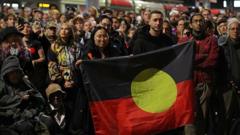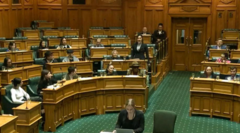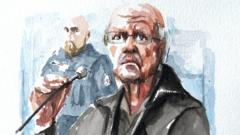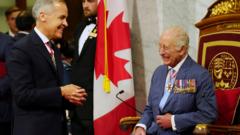The censure of Senator Thorpe follows her outspoken protest against colonial injustices during King Charles' visit, igniting national debate on Indigenous rights.
Senator Lidia Thorpe Faces Censure for Protesting King Charles in Parliament
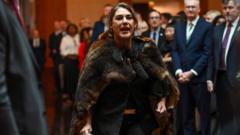
Senator Lidia Thorpe Faces Censure for Protesting King Charles in Parliament
Lawmakers condemn Aboriginal senator's heckling as a symbol of colonial grievances.
Australian senator Lidia Thorpe has been formally censured by her peers for heckling King Charles during his visit to Canberra's Great Hall of Parliament last month. Her outburst, where she shouted "you are not my King" and "this is not your land," aimed to draw attention to the lasting effects of British colonization on Indigenous Australians. The Senate's censure motion, passed with a vote of 46-12, labeled her actions as "disrespectful and disruptive," suggesting that they should disqualify her from any official representation in the chamber. It is important to note that while a censure carries political weight, it lacks any constitutional or legal implications.
In a post-vote statement, Thorpe expressed frustration, claiming she was unable to respond to the censure in the Senate due to a flight delay. "The British Crown committed heinous crimes against the first peoples of this country... I will not be silent," she asserted to the media. The senator's actions drew criticism from many across political lines as well as some Indigenous leaders. However, she also gained support from activists who argued that her protest illuminated the ongoing struggles faced by Aboriginal Australians, who continue to grapple with severe disadvantages in health, education, and lifestyle when compared to non-Indigenous populations.
Despite the controversy surrounding Thorpe, King Charles received a warm welcome during his five-day tour of Australia, with Prime Minister Anthony Albanese acknowledging the importance of the royal visit. Thorpe's activism has previously generated international attention; during her swearing-in ceremony in 2022, she referred to the late Queen Elizabeth II as a colonizer, prompting the need to reaffirm her oath. Last year, Australia faced stark divisions in a referendum aimed at granting constitutional recognition to Aboriginal and Torres Strait Islanders, which ultimately saw a majority voting 'Yes' but highlighted significant dissent within the community. Thorpe was notably a vocal opponent of the proposal, criticizing it as inadequate and merely symbolic.




